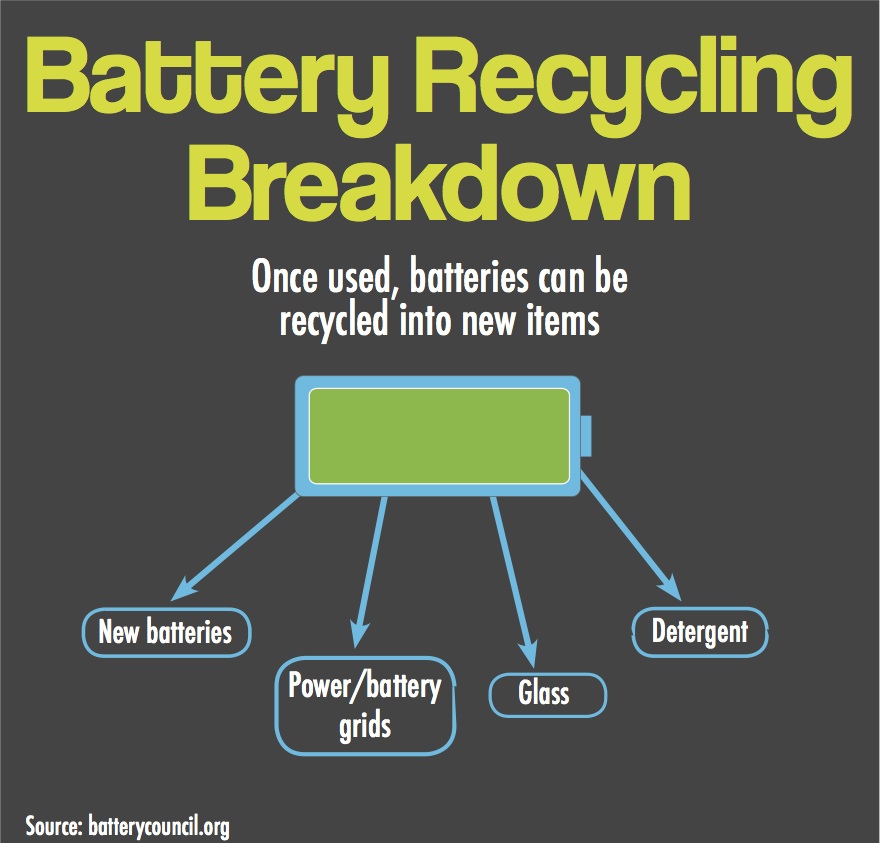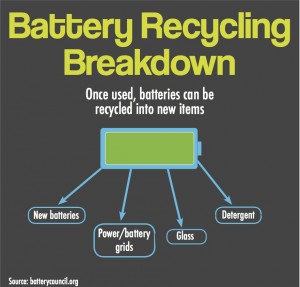
Truman State Student Senate took a step toward creating a biannual battery recycling drive last week.
The Senate approved changes to the language in the Student Government Standing Rules which mandate that the Environmental Affairs Committee host a battery recycling drive each semester. To make hazardous waste recycling a routine occurrence at Truman, the Environmental Affairs Committee developed a system in which different committee members take donated batteries to facilities in either St. Louis or Kansas City, Missouri, Environmental Chair junior Chris Hornsey says.
Hornsey says the changes the Senate made during last week’s meeting will allow the drives to operate independent of the Kirksville Public Works Department. He says the Senate made the changes to reduce costs and avoid city stipulations that would prevent Student Government from being able to make drives a recurring event.
The goal of the drives is two-fold — to protect the resources of Kirksville by reducing hazardous waste disposal and to encourage a sense of environmental responsibility for Truman students, Hornsey says.
“Most people I would talk to, both in and outside of Student Government, weren’t even aware there’s a special procedure for battery disposal and that was a little frightening. There’s a lot of things people can do that they don’t know about, and I’m hoping to make people more aware of programs like glass and battery recycling so that when they leave Truman, they retain that awareness as they continue on with their lives.”
– Chris Hornsey, Student Government Environmental Chairman

Hornsey says not recycling batteries can have a negative impact on the environment. He says as batteries break down in landfills, they release acid and heavy metals such as mercury. Hornsey says the toxins can leak into the soil, which is not healthy.
The next spring drive will most likely take place April 2016, during Earth Week, Hornsey says. Hornsey says the recycling procedure itself should operate in a fairly straightforward way.
“There are a few details that need to be worked out first,” Hornsey says. “Most you can just put into a bin, but if you get too many of certain kinds they can create a circuit and potentially start a fire. We’re going to avoid that.”
By making battery recycling an event and advertising it during Earth Week, Hornsey says he hopes the idea of recycling will become more important in students’ minds than it would if receptacles were consistently available.
To read more on Truman’s battery initiative continue reading on Issuu.
